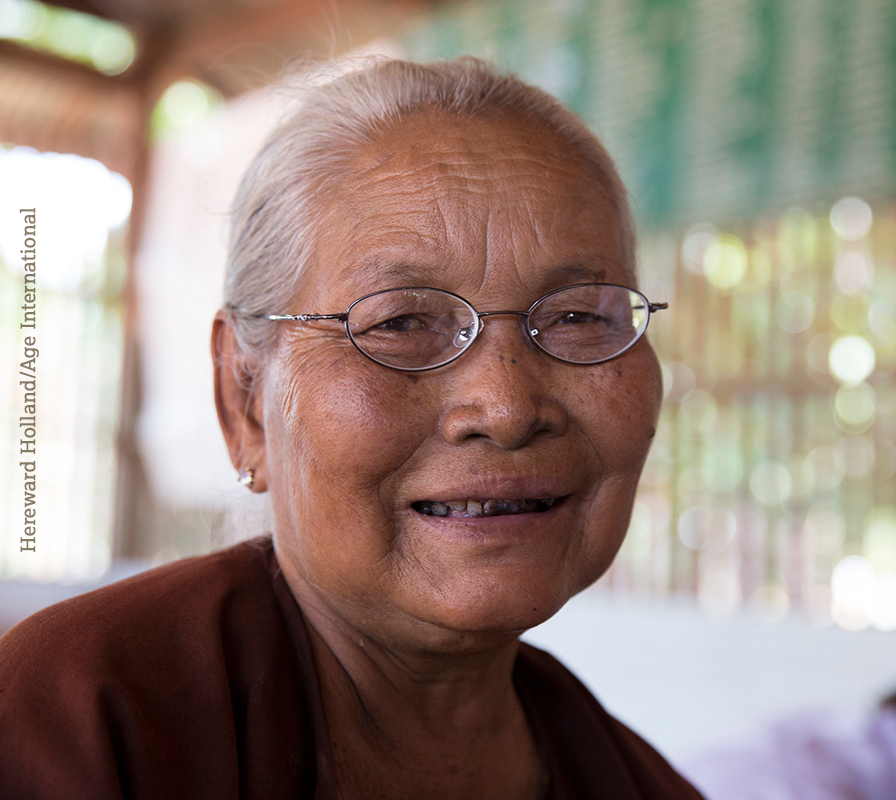What are social pensions?
Social pensions are a proven means of reducing old-age poverty and supporting multi-generational households.
The term ‘pension’ is widely used to describe a range of cash income, mainly for older people, including both non-contributory and contributory cash transfers of various kinds. The term ‘social pension’ is used to refer to non-contributory pensions funded via national governments, usually through taxes.
Universal non-contributory pensions are distinguished from those that are means tested. Universal pensions are unconditionally available to all. Means-tested pensions are targeted to the poor, and are conditional on tests of earning, income or assets.
Old age social pensions improve income security in later years by providing cash transfers in old age. They assist the poorest people and can regenerate local economies and redistribute wealth as well as improving the nutritional status of the young, support school attendance and improve the health of all household members.
Impact of old age social pensions
Old age social pensions have a range of economic, social and health benefits:
Economic benefits
- Pensions reduce individual poverty – enabling the poorest older people to pay for basic necessities such as food.
- Reducing old-age poverty contributes to overall poverty reduction – through not only alleviating immediate poverty but reducing chronic poverty and promoting higher living standards over the longer term.[i]
- Pensions reduce household poverty – as income is often pooled within multi-generational households.
- Cash transfers to older people stimulate the local economy – as recipients invest in basic necessities from local stores, as well as income generation and acquisition of productive assets.
Social benefits
- Children benefit when grandparents have a pension – as research shows that older people consistently invest their money in health and education of dependents.
- Pensions improve family cohesion and the status of older people – as it may provide an incentive for different generations to live together, and older people have some control over their income which can contribute to more equitable distribution of resources.
- Pensions make older people feel independent – as it promotes a sense of security and dignity in older people who would otherwise depend on family members.
Health benefits
- Pensions enable older people to pay for health care, medicines and associated costs such as transport to health centres – costs which can account for as much as three quarters of the income of the poorest older people.[ii]
- Pensions mean that older people can afford to eat – otherwise a significant proportion of older people would not be able to afford to eat regular meals, adversely affecting nutritional intake and health.
Old Age social pensions in Asia
Fourteen countries in East Asia and Pacific have social pension schemes including universal social pensions, pension-tested social pensions and means-tested social pensions schemes.[iii] China has a partial pension scheme, the New Rural Pension Scheme which reaches 133 million people over the age of 60.[iv]

References
[i] Devereux, S, ‘Can social safety nets reduce chronic poverty?’, Development Policy Review 20:5, 2002.
[ii] Randel, J et al. (eds), The ageing and development report: poverty, independence and the world’s older people, London, HelpAge International, 1999.
[iii] Helpage International, PensionWatch database, updated 5 November 2013
[iv] Knox-Vydmanov, 2013, http://www.dandc.eu/en/article/helpage-warns-international-agencies-are-paying-too-little-attention-ageing-entire-societies

